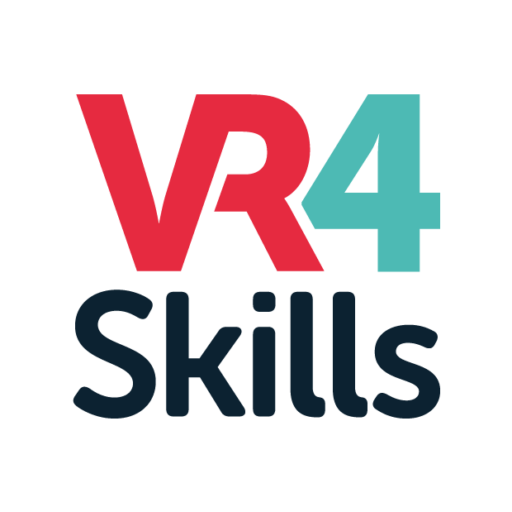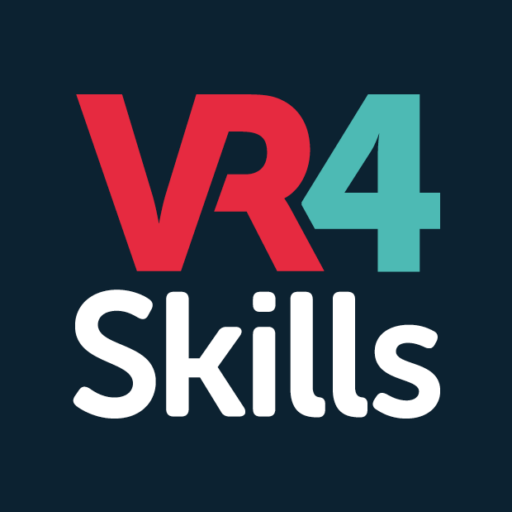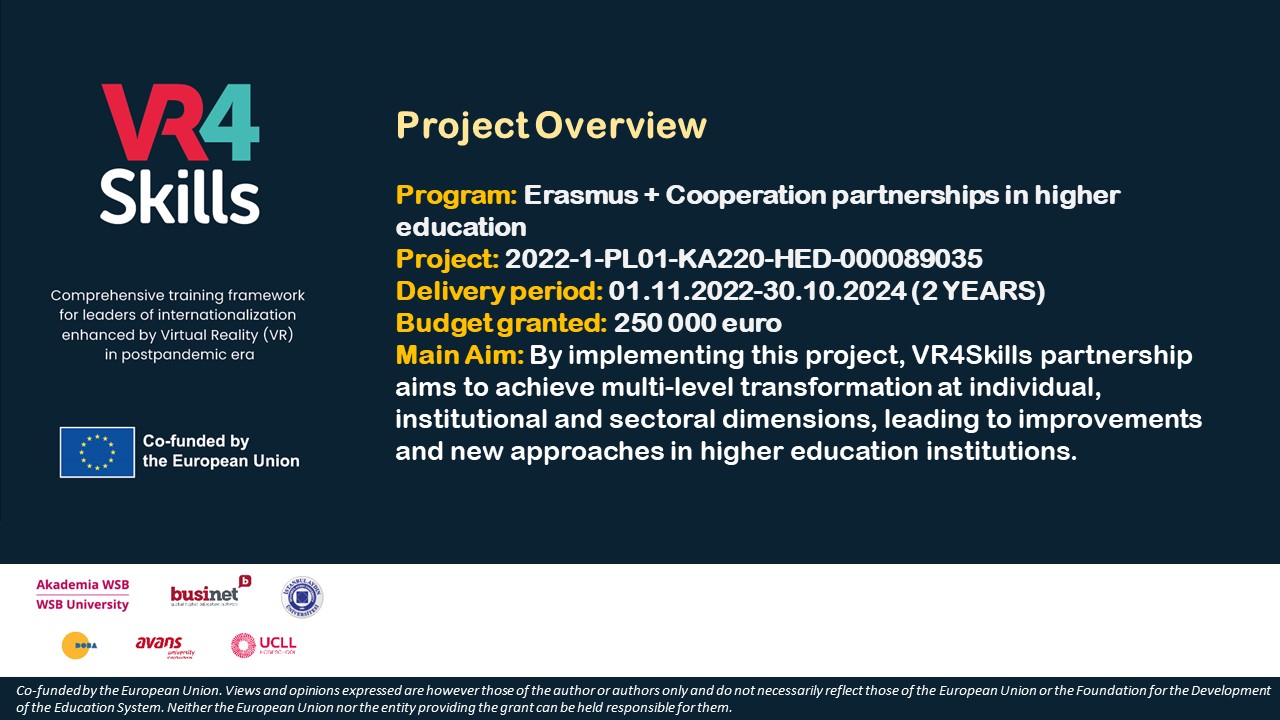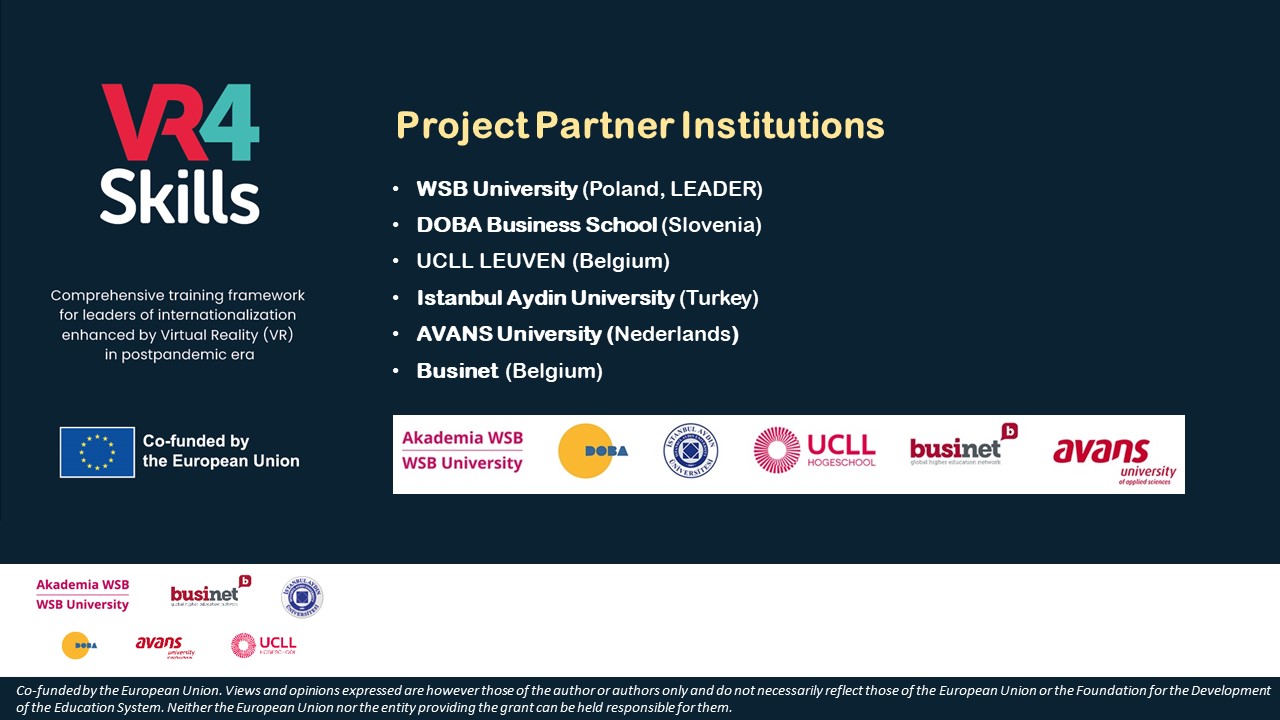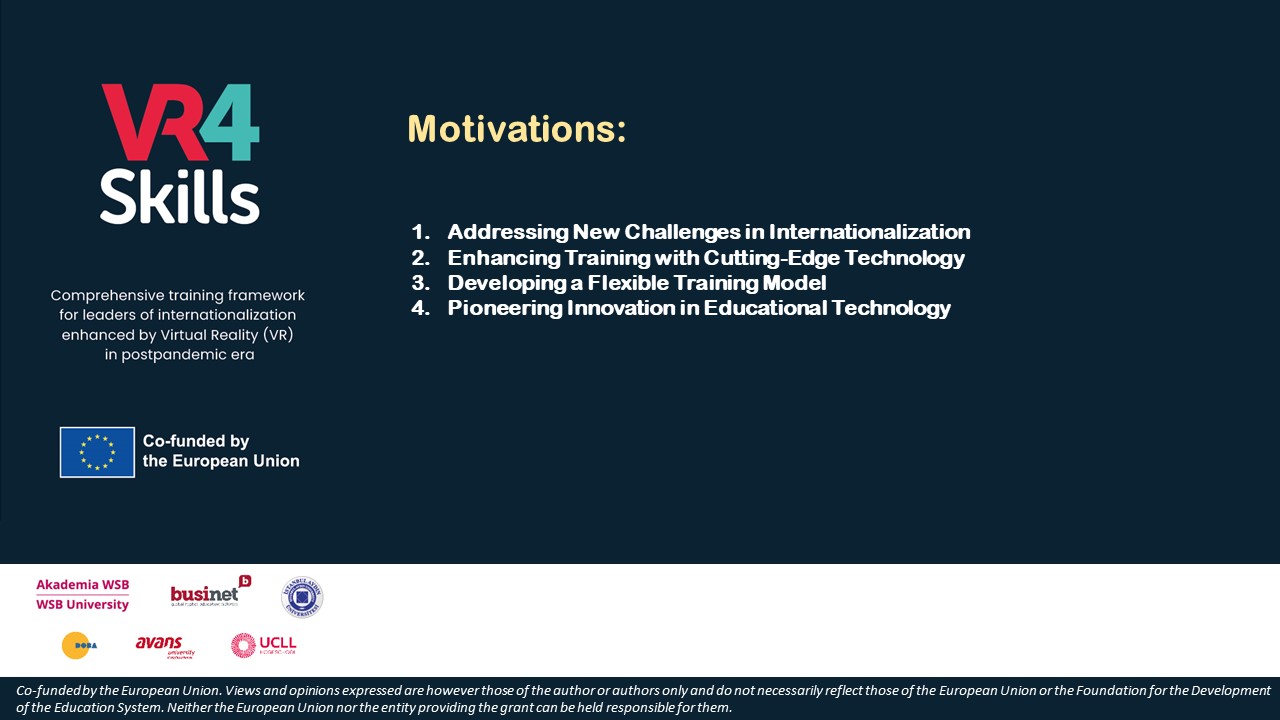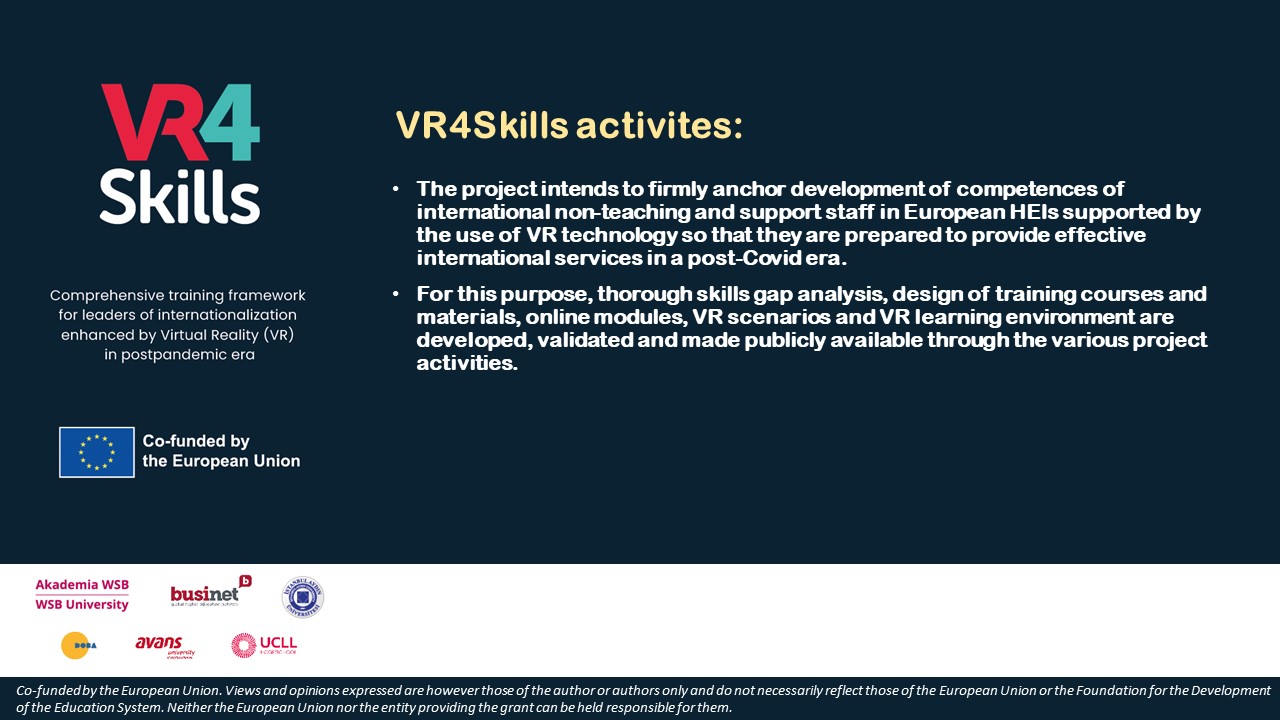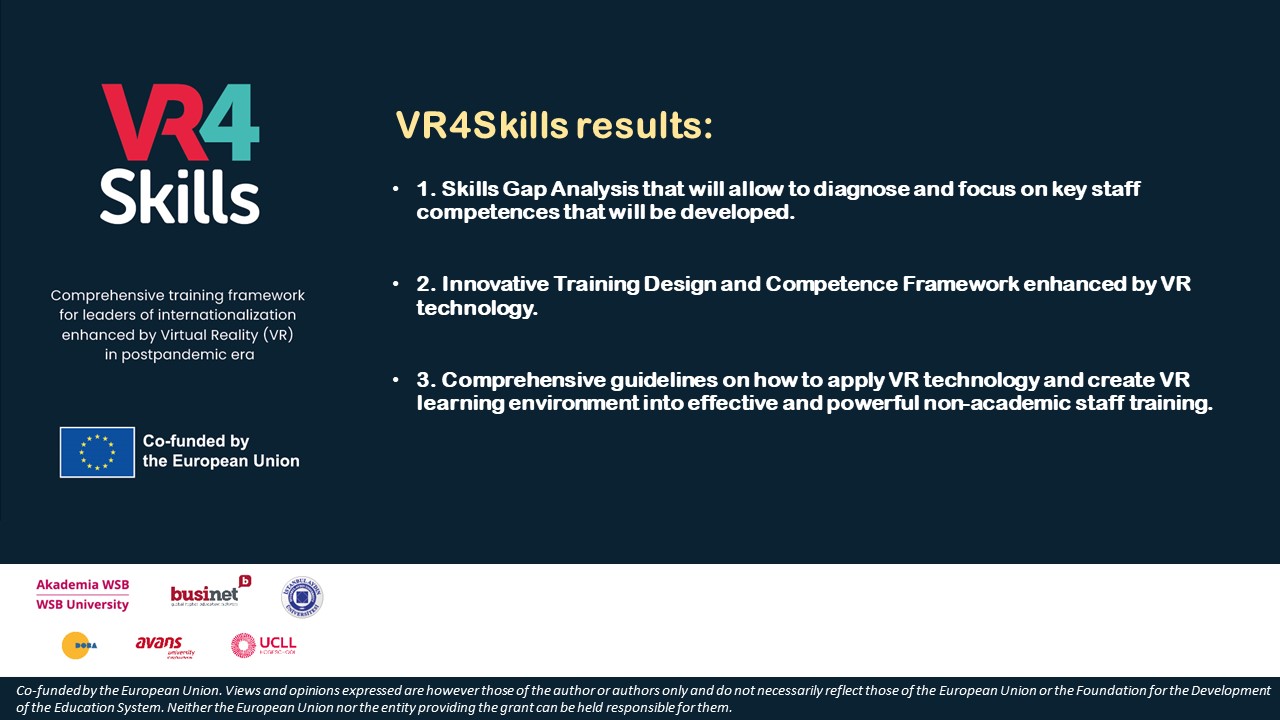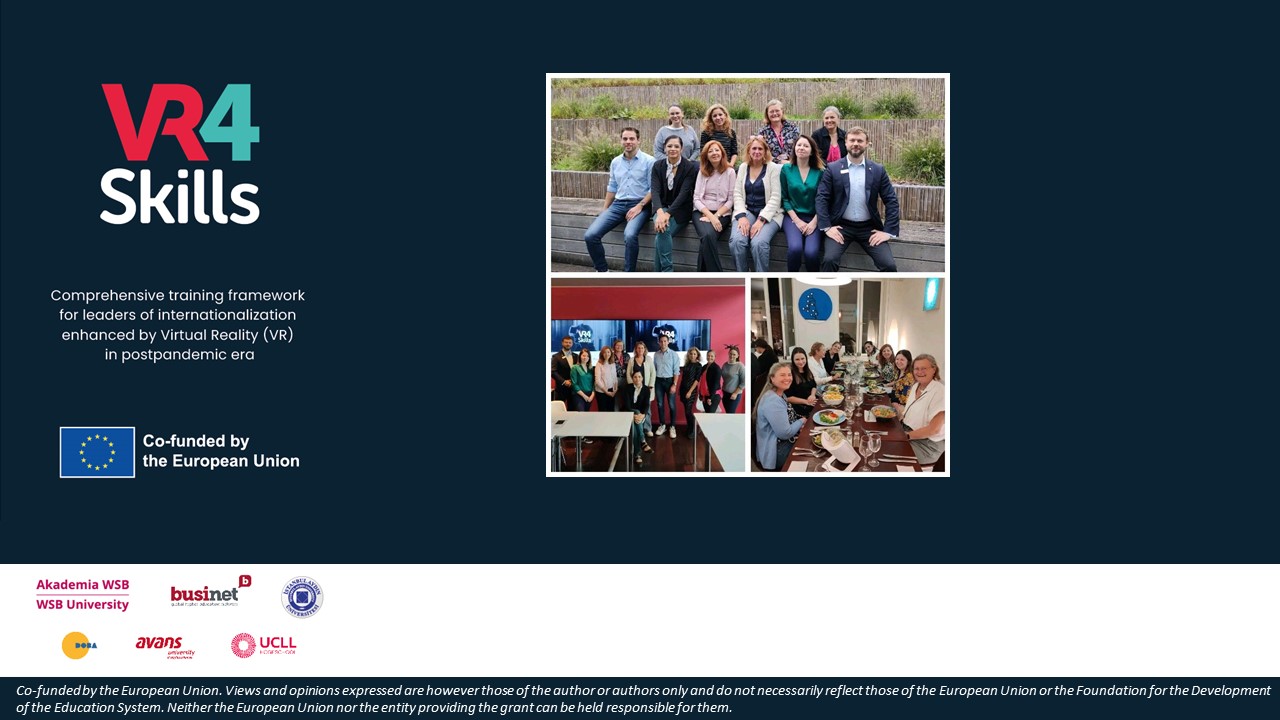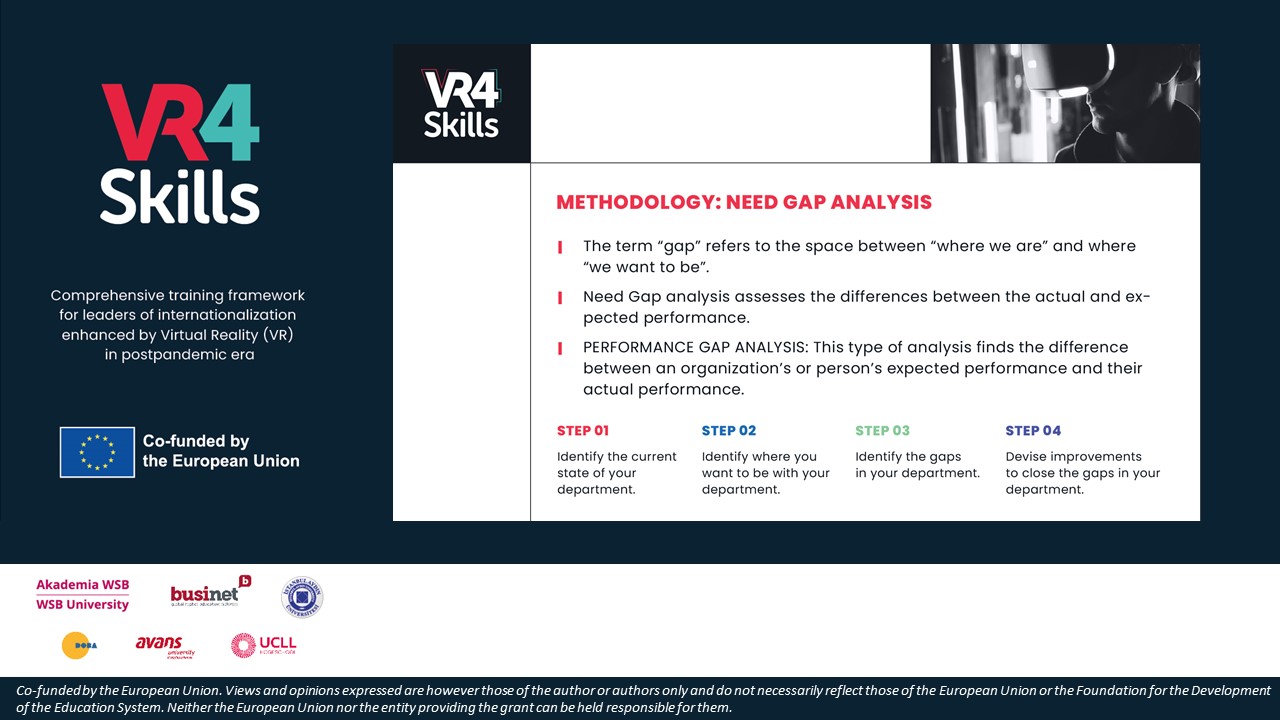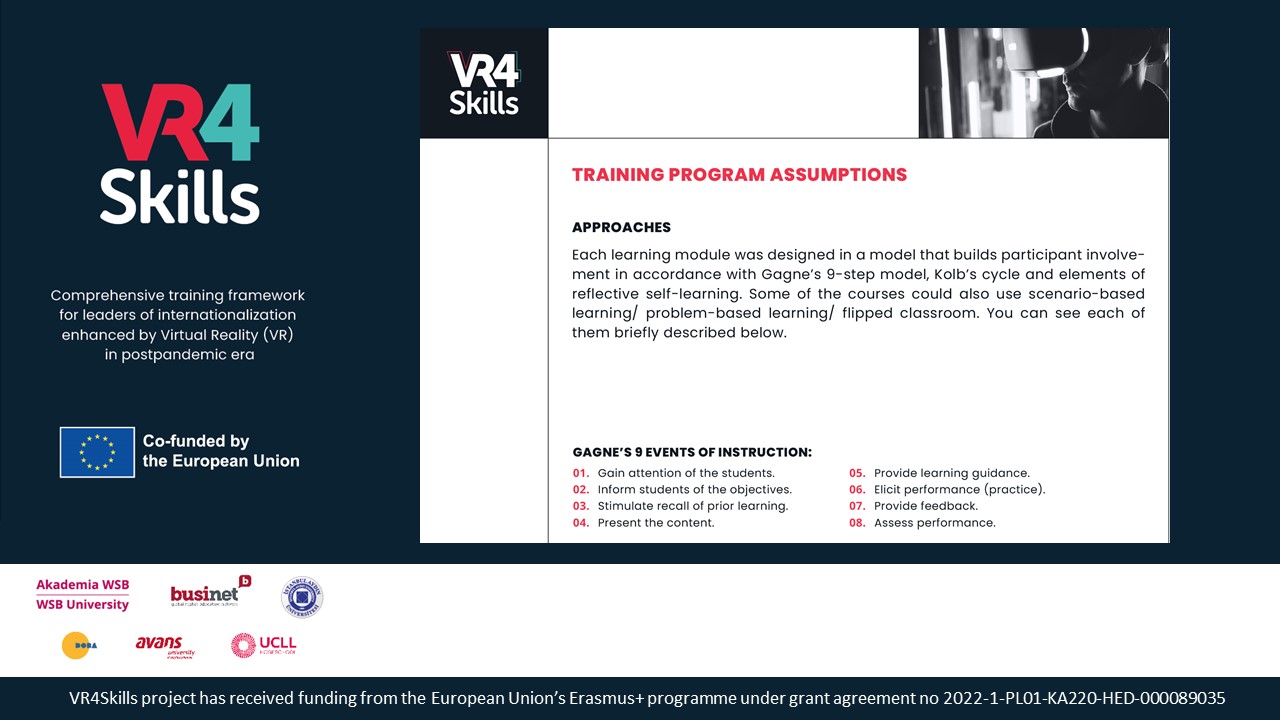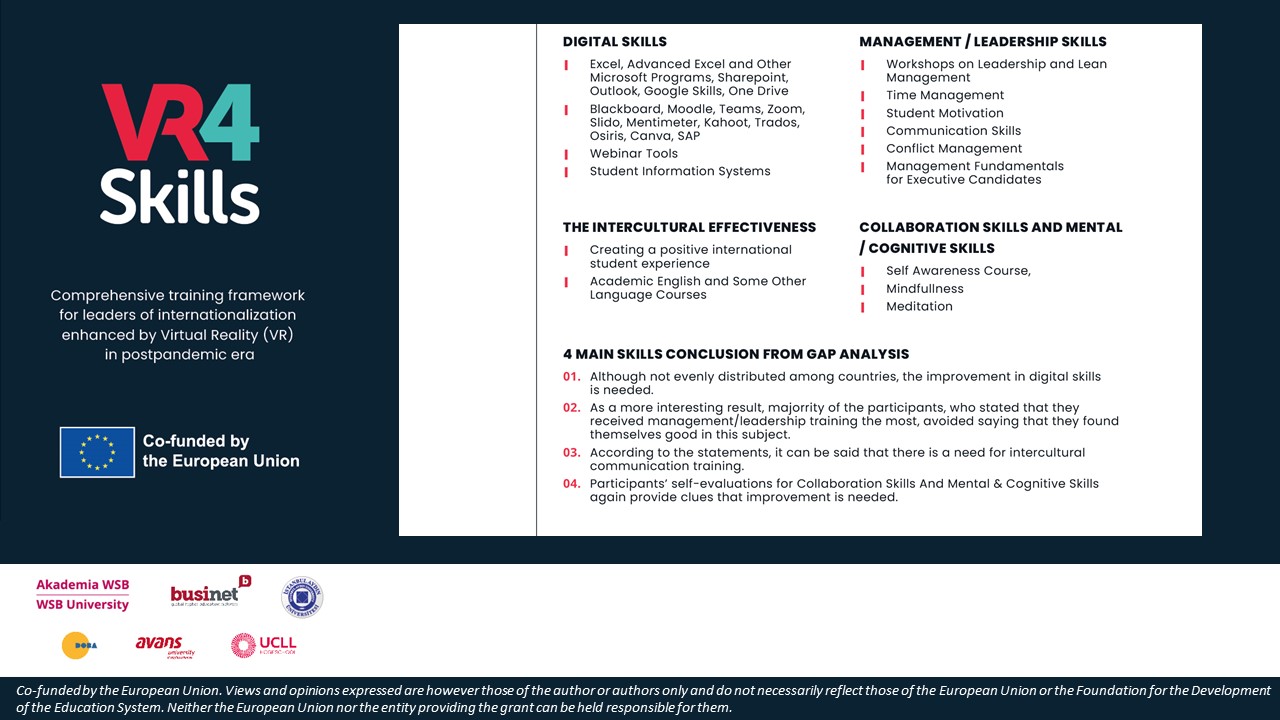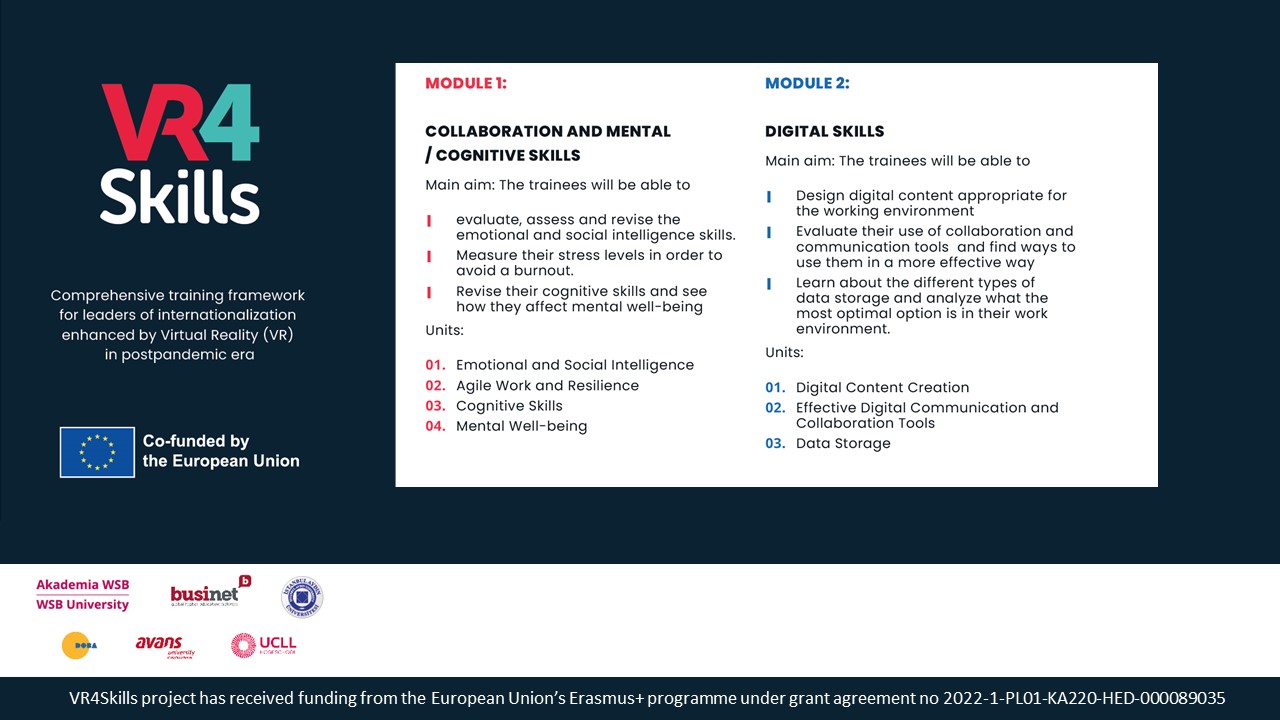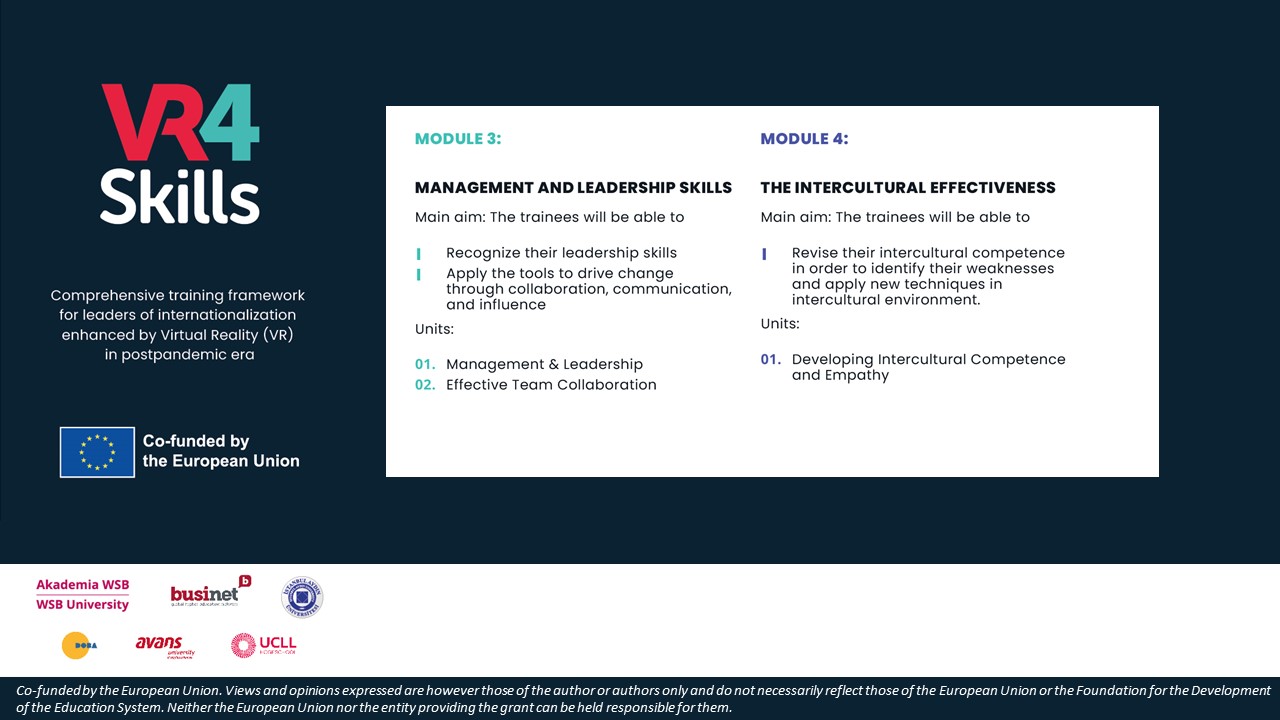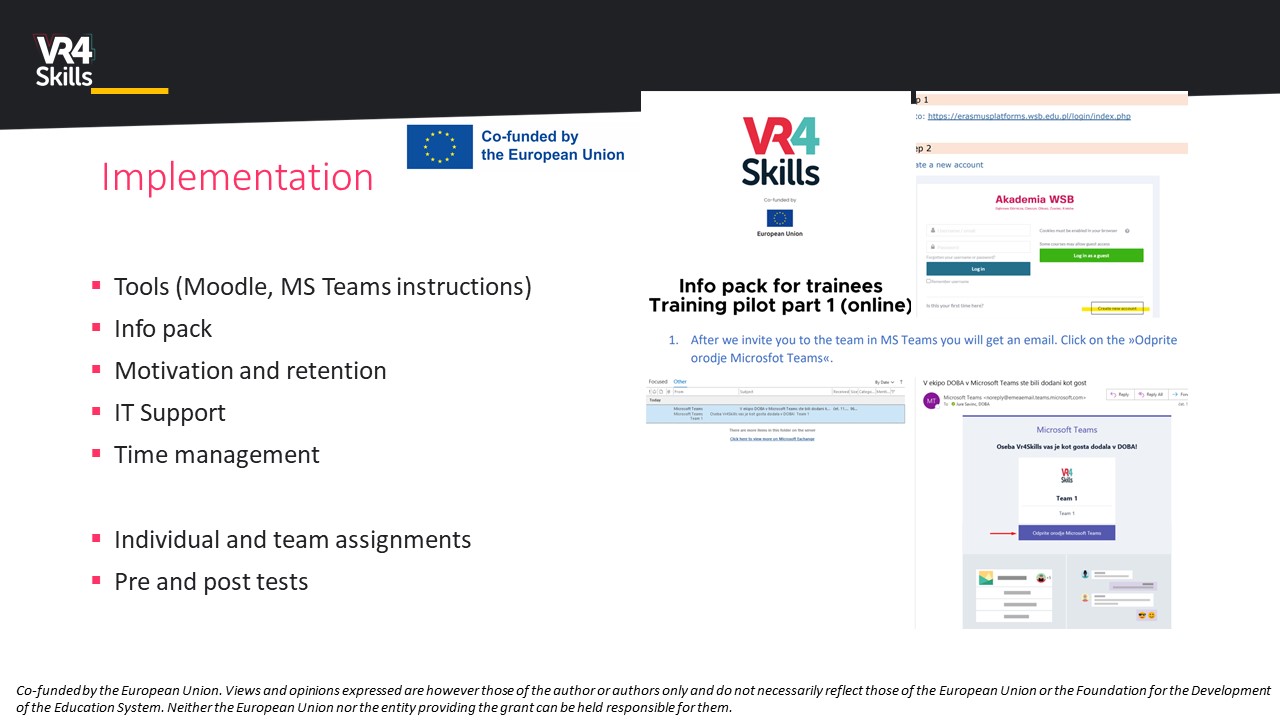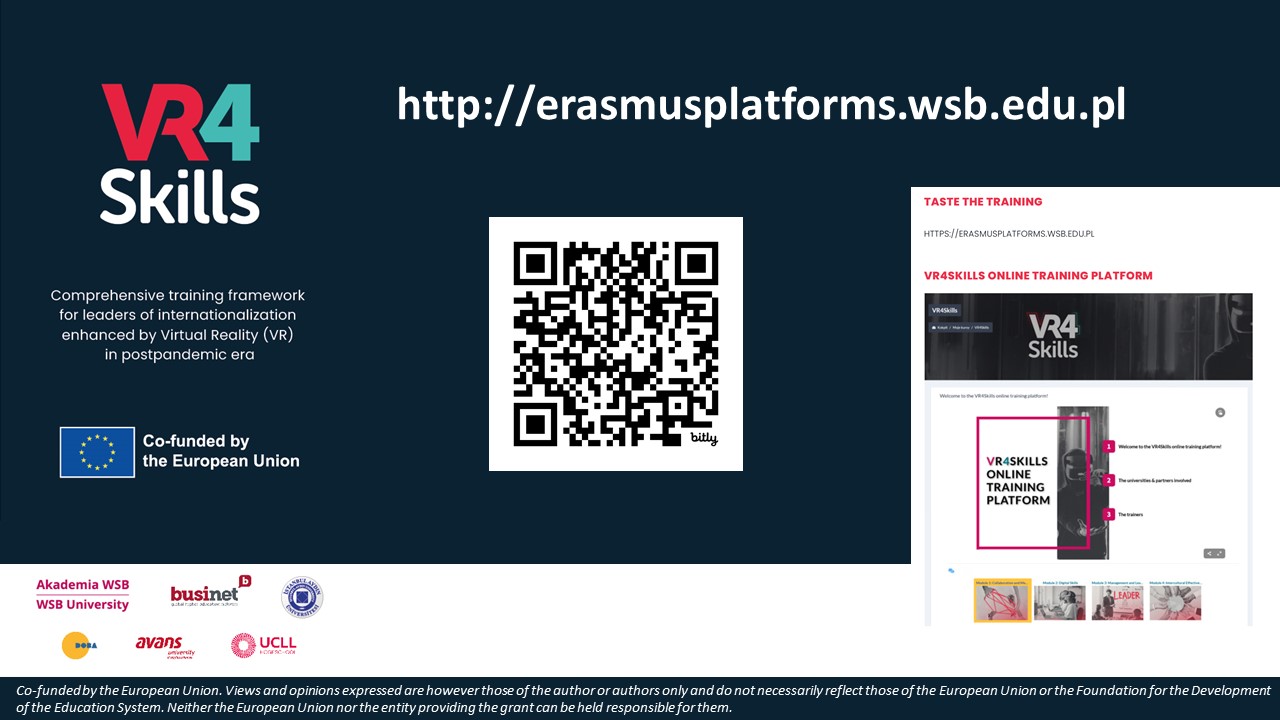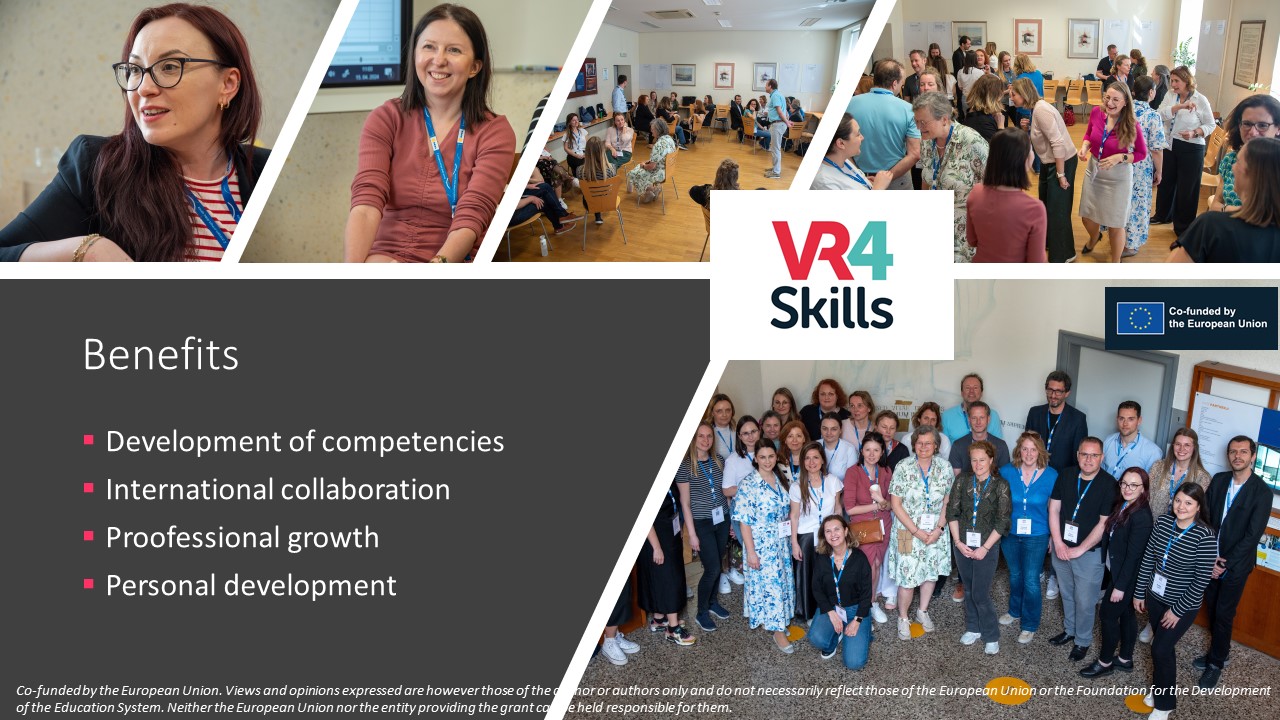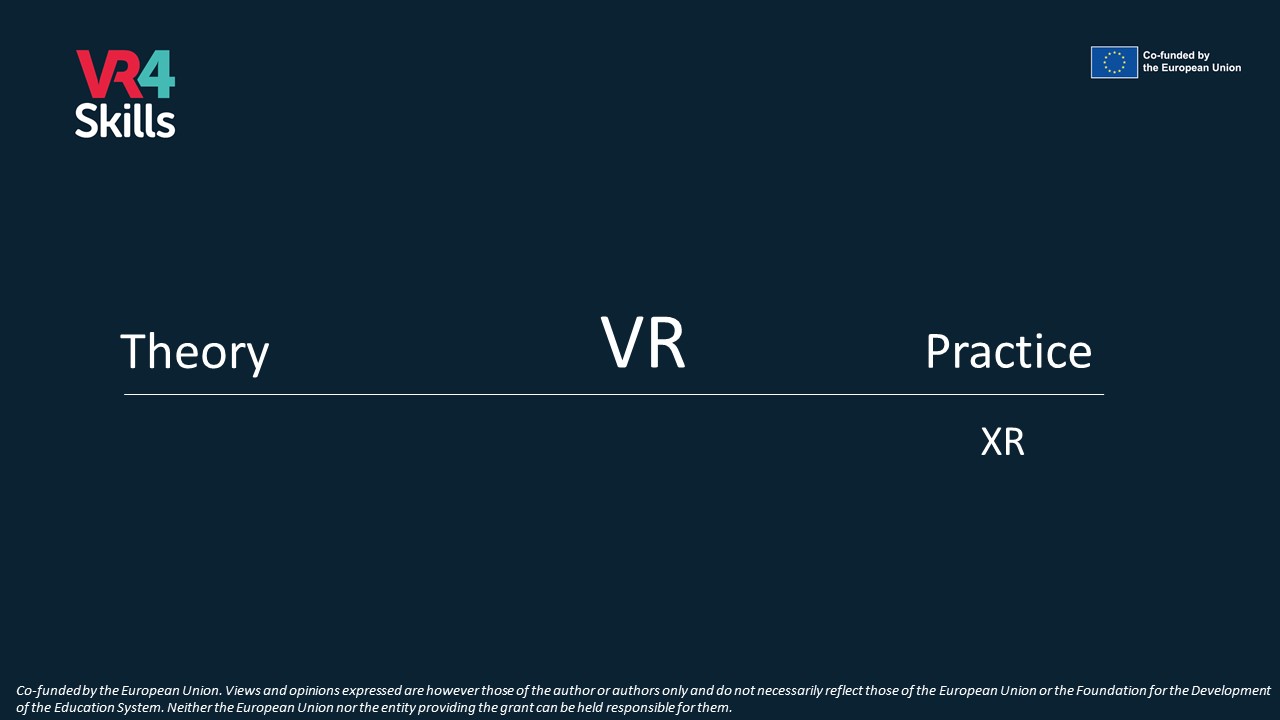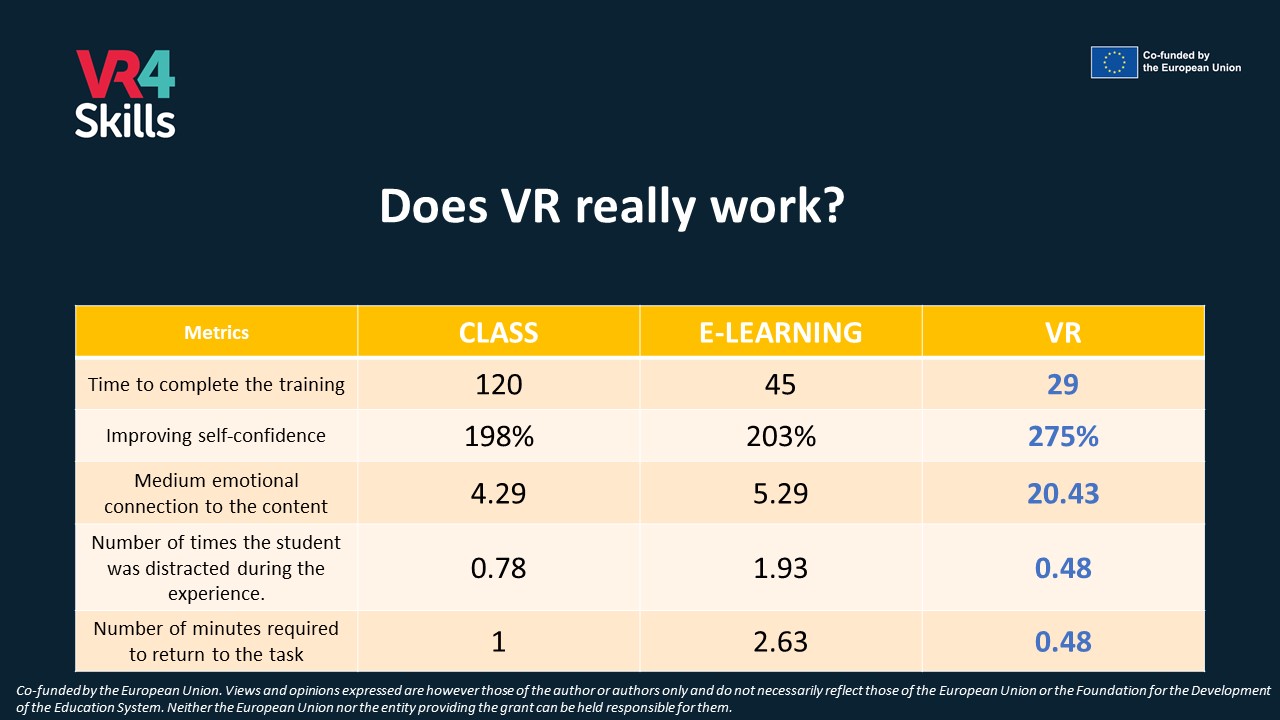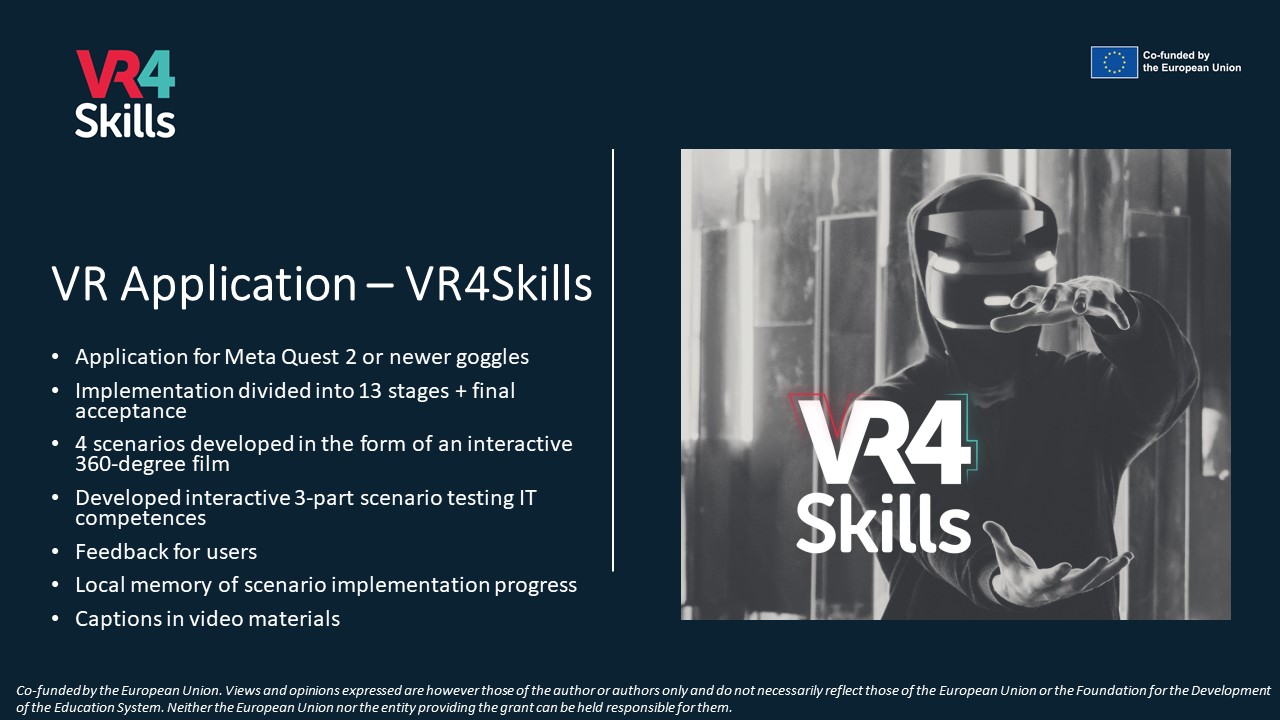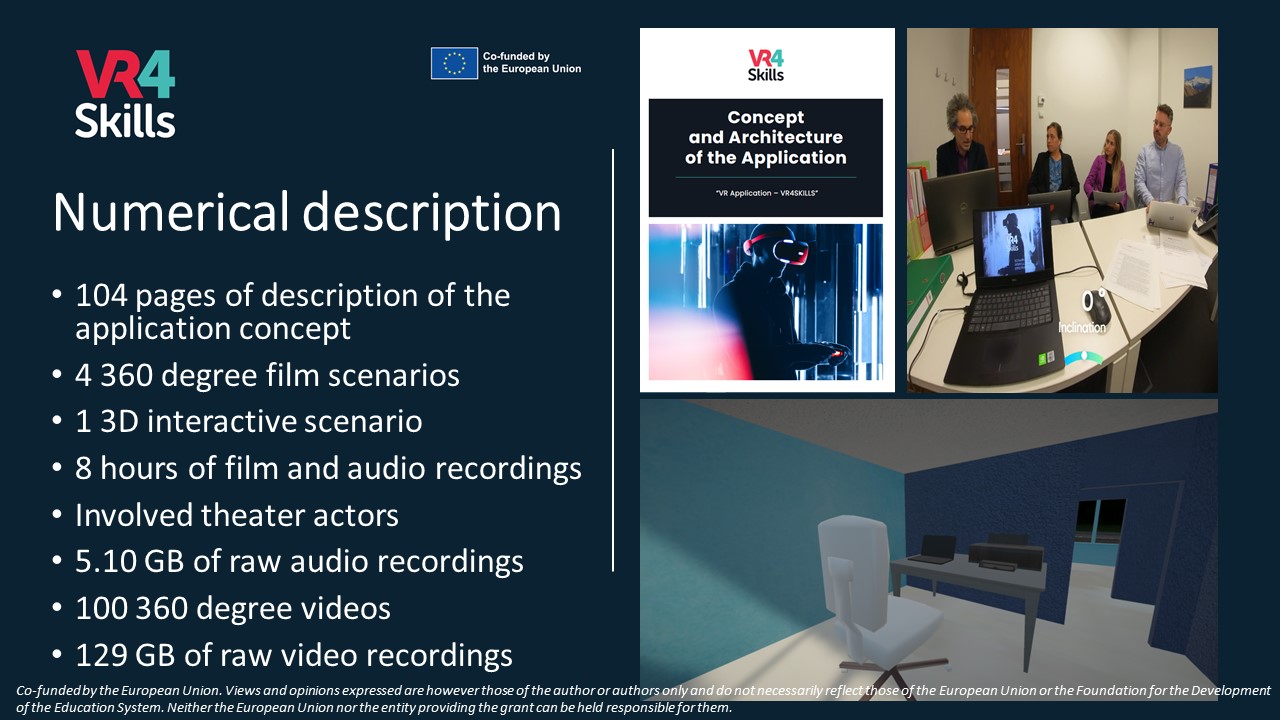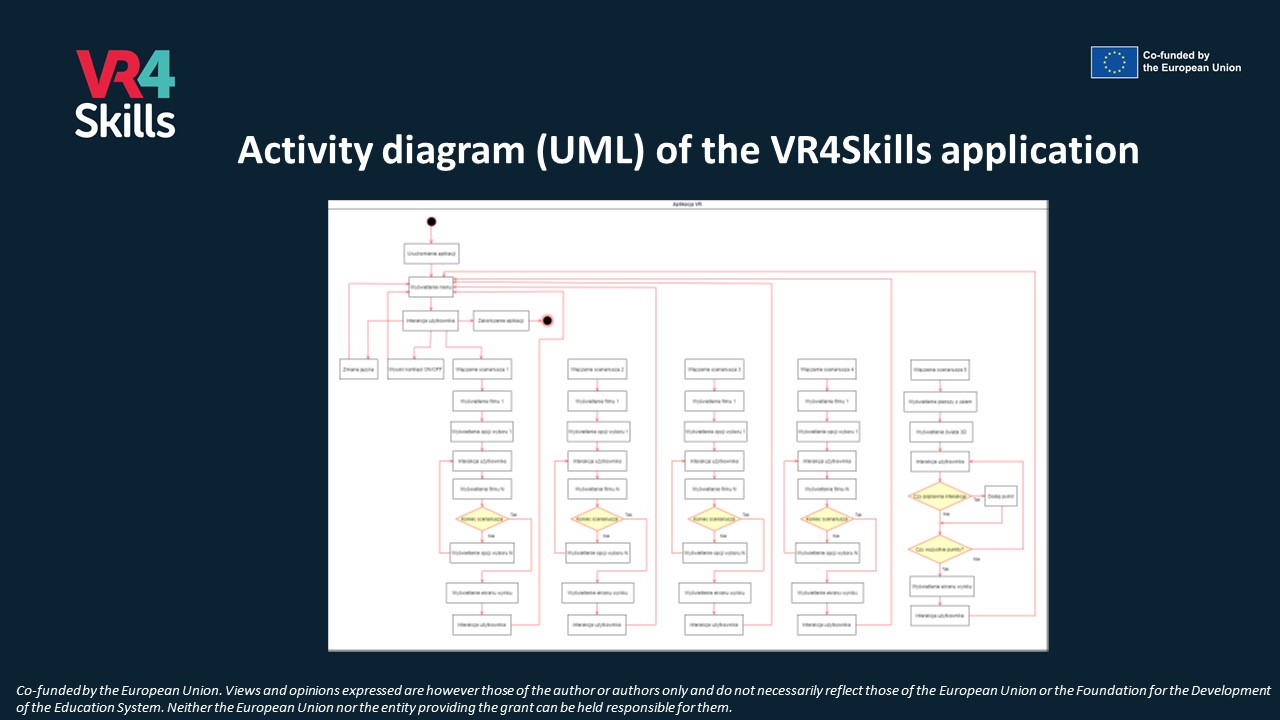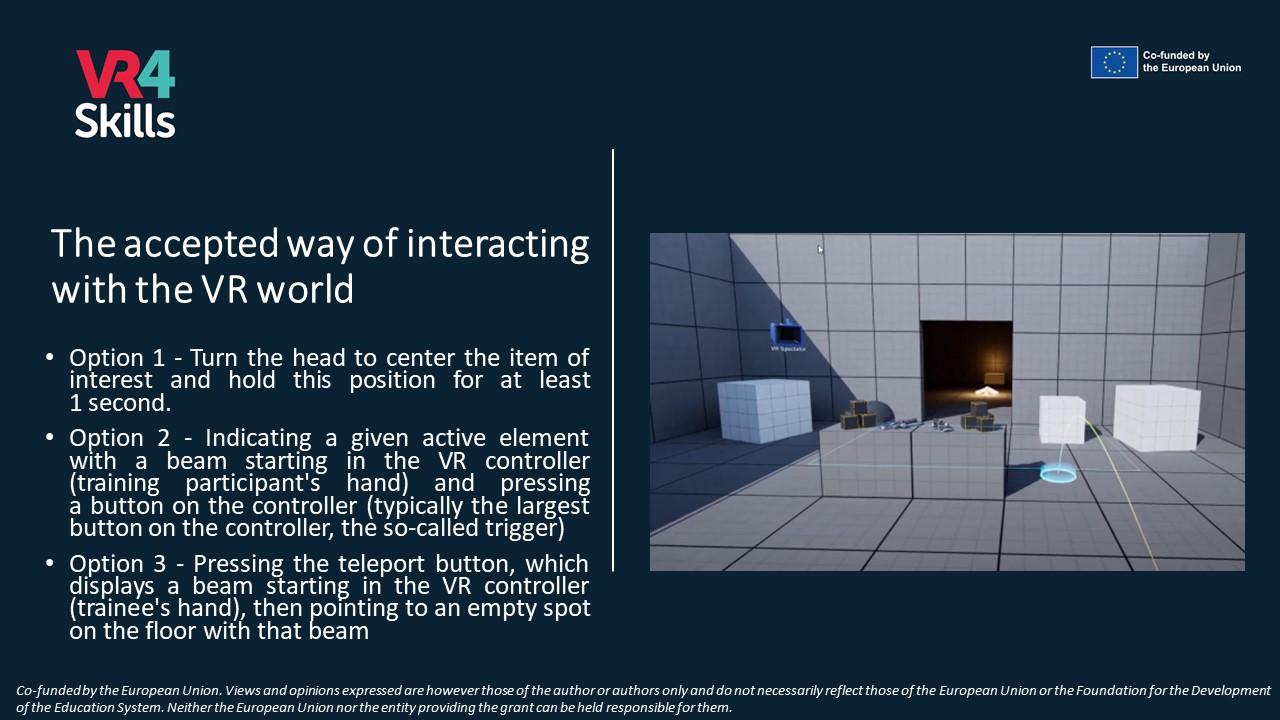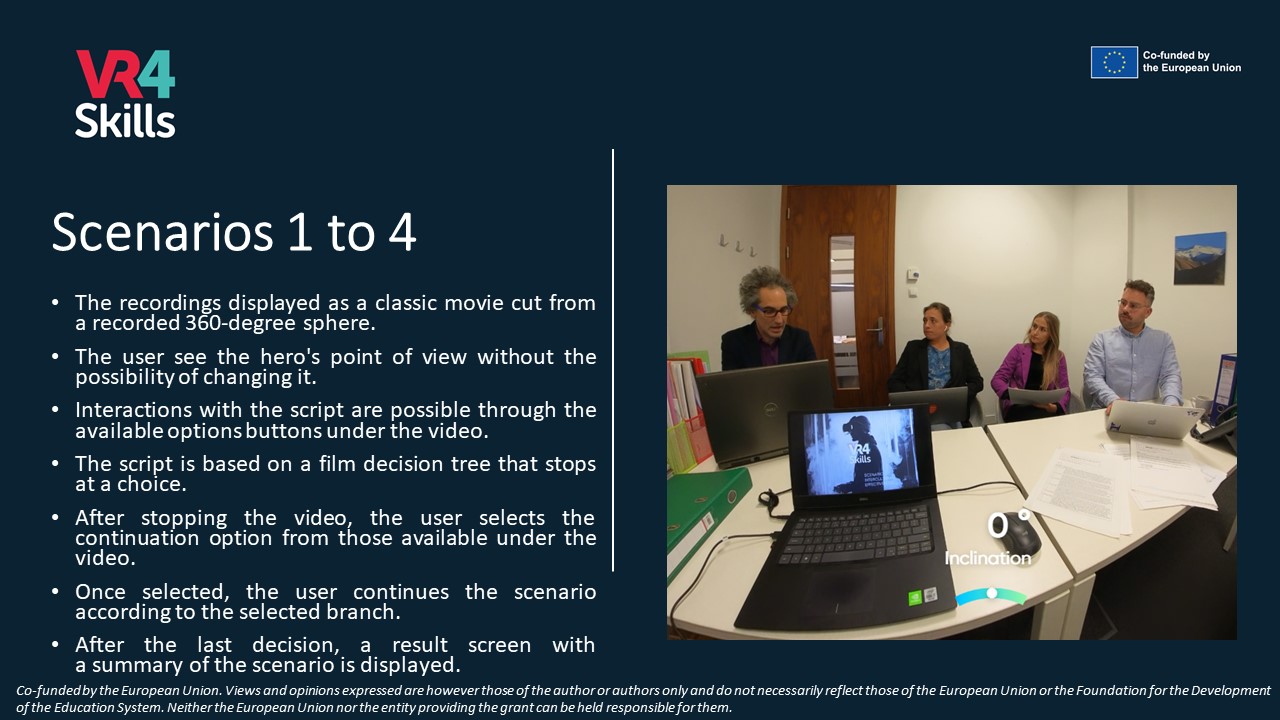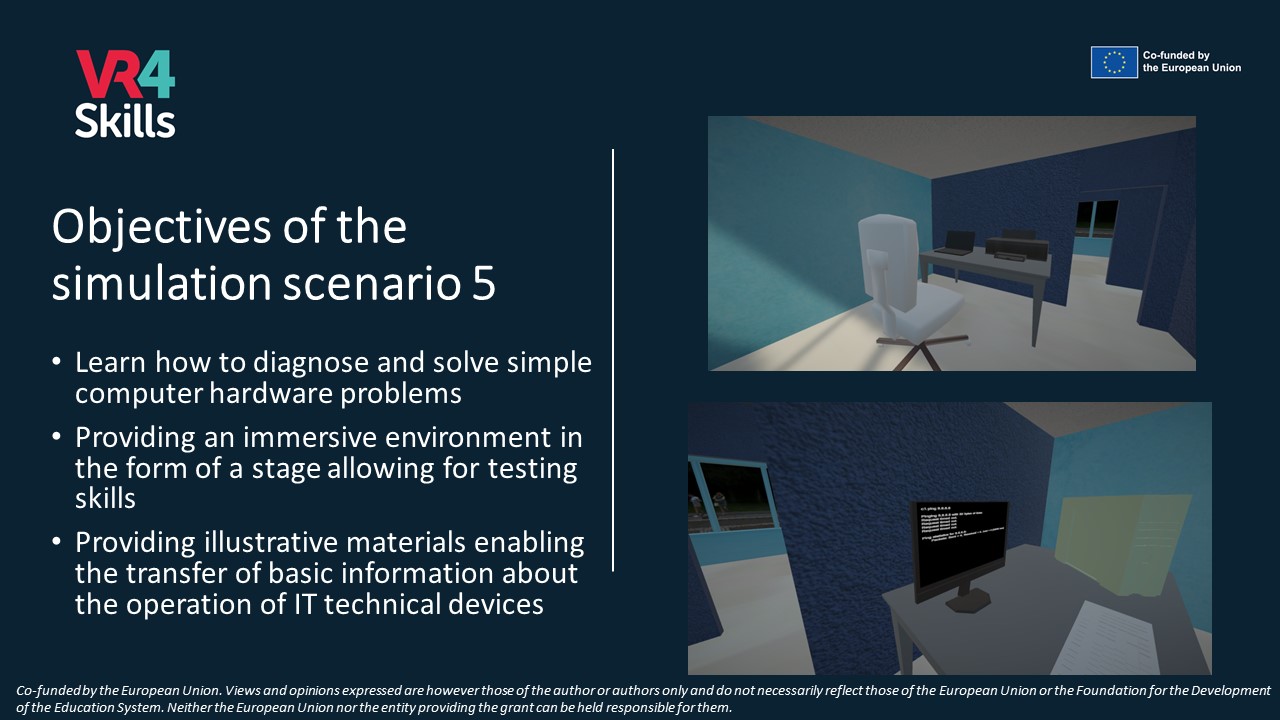VR4Skills Project:
- Project Number: 2022-1-PL01-KA220-HED-000089035
- Project Title:
VR4SKILLS – Comprehensive training framework for leaders of internationalization enhanced by Virtual Reality (VR) in the post-pandemic era. - Project Acronym: VR4SKILLS
- Project Website: vr4skills.eu
- Coordinating Institution: Akademia WSB / WSB University
- Partners: UC LEUVEN (Belgium); DOBA School of Business (Slovenia); ISTANBUL AYDIN UNIVERSITY FOUNDATION (Turkey);; AVANS University (Netherlands); Businet VZW (Belgium)
- Duration: 24 months
- Co-funding from the European Union: €250,000
Project Summary
The VR4Skills project aims to develop innovative training tools for advancing the individual competencies of higher education staff engaged in internationalization processes. The target group of the project consists of experienced administrative employees. The acquired competencies are intended to effectively support the international and intercultural context of higher education institutions, thereby contributing to the creation of an inclusive and interconnected academic environment.
The project focuses on the sustainable development of international competencies among administrative staff at European universities. The training process will be supported by the use of VR technology and will address new aspects of the functioning of higher education institutions in the post-COVID era. To achieve this in the project activities are directed to: conduct a competency gap analysis, development of training program, educational materials, and VR scenarios.
Unlocking the Power of Global Connectivity
The use of technologies in teaching and learning in higher education is increasing across the globe. With this project the partners express their interest and willingness to participate in a networked world, where each institution strives to be inclusive for their students and staff.
The main purposes of the project:
The project intends to firmly anchor development of competences of international non-teaching and support staff in European HEIs supported by the use of VR technology so that they are prepared to provide effective international services in a post-Covid era. For this purpose, thorough skills gap analysis, design of training courses and materials, online modules, VR scenarios and VR learning environment are developed, validated and made publicly available through the various project activities.
